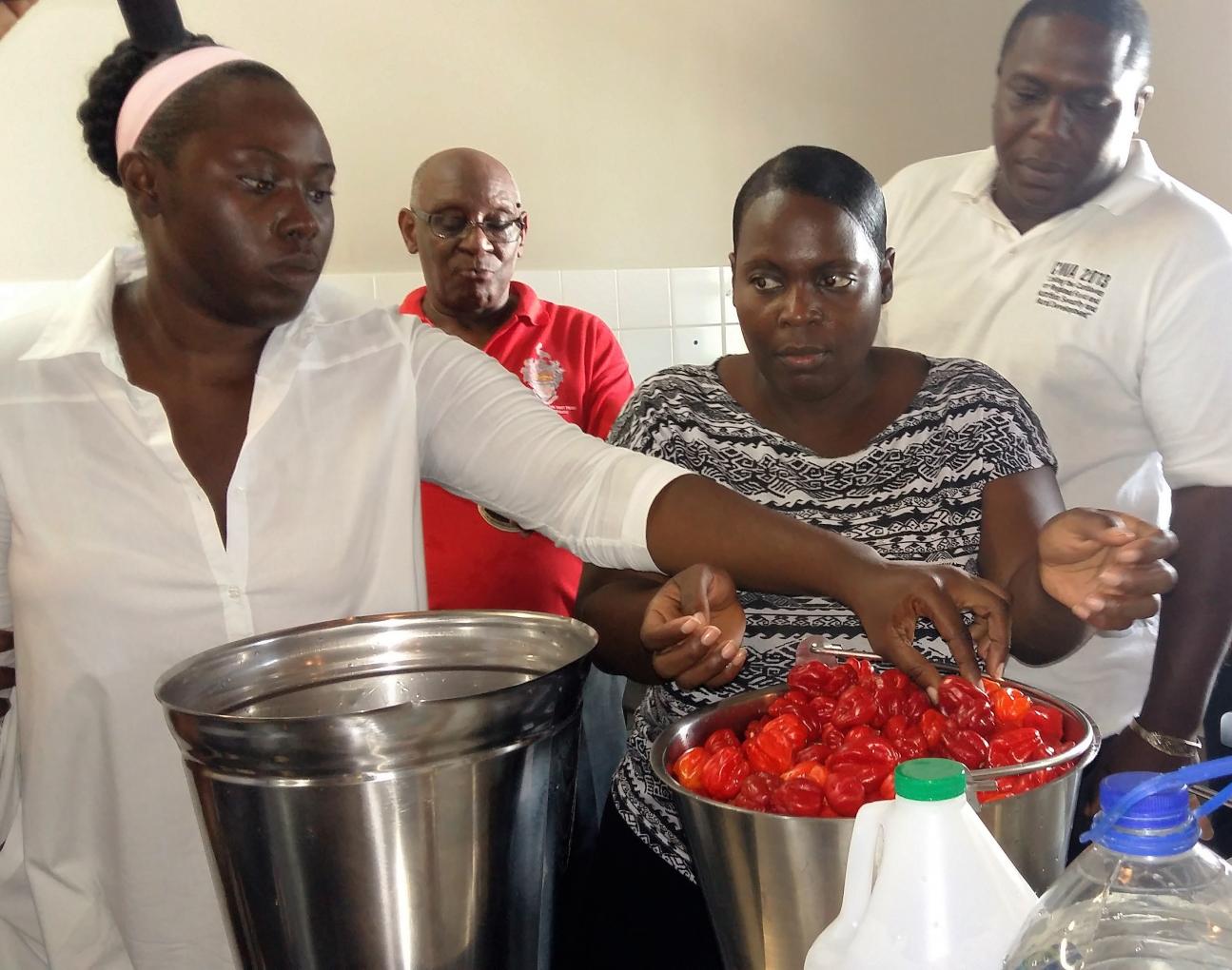An IICA project – led by the European Union – facilitated training that could help small agro-processors produce safer and better quality products.

Antigua and Barbuda, October 24, 2016 (IICA). The Inter-American Institute for Cooperation on Agriculture (IICA) has continued its support to the Caribbean hot pepper industry by facilitating a training event on best practices in hot pepper mash and hot pepper sauce production for agro-processors and enterprise groups, using proven methods of producing hot sauce that would boost their productivity and the profitability of their businesses.
The participants were provided with the knowledge and practical skills to introduce into the market an adaptive storage measure for the hot pepper raw material. A total of 27 persons participated in the two-day workshop, which targeted the rural women processors, youth and other agriculture entrepreneurs.
The training was conducted by Ian Lambert, Ph.D in Food Sciences. It was supported through collaborative effort with the Caribbean Agriculture Research and Development Institute (CARDI) and the Antigua and Barbuda Bureau of Standards (ABBS); and funded by the 10th European Development Fund (EDF) Intra-ACP Agriculture Policy Programme (APP), with focus on the Caribbean and Pacific.
According to the small scale hot pepper processors and producers, the activities under this workshop could improve their understanding and daily operations, thus contributing to the production of safer and better quality products.
“The enthusiasm of hot pepper entrepreneurs could lead to meaningful changes in product development, as well as hygiene and sanitation practices, documentation and storage”, said Lambert.
A dynamic experience
In addition to the classroom type lecture sessions, participants had a practical session where they were exposed to real life scenarios and strategies to properly process hot pepper.
The workshop highlighted the features and benefits of hot pepper production by demonstrating new techniques for preserving hot pepper by making pepper mash made from hot peppers that have been ground, salted, and allowed to ferment with lactobacillus bacteria. The capsaicin naturally present in the peppers, the added salt, and the resulting low pH (high acidity) of the finished product makes it naturally resistant to spoilage.
Turning peppers into pepper mash is also a preservation technique. Participants were able to observe demonstrative techniques for consistency of pepper sauce, along with testing of hot sauce acidity.
The pepper mash training was also complemented with information on good field practices, since quality begins on the farm.
As an APP Partner, CARDI shared information with hot pepper producers and extension officers on crop fertility and management of hot pepper production under climatic conditions in Antigua and Barbuda.
Standardization Officer, Gem Reynolds, from the ABBS shared information with respect to packaging and labelling standards for products, notably pepper sauce. She also indicated that the ABBS was available to assist small and medium enterprises, as it relates to standardizing their products, especially those for human consumption.
The APP
The Intra-ACP Agriculture Policy Programme (APP) is executed through a contribution agreement signed between the European Union and IICA and is being implemented in collaboration with CARDI and the CARICOM Secretariat (CCS).
The objectives of this programme are to contribute to enhanced regional and interregional capabilities for the agricultural sectors in eradicating poverty, and to increase the capability of regional agricultural development organizations of the Caribbean and Pacific regions to address the development needs of smallholder agriculture.
More information:











